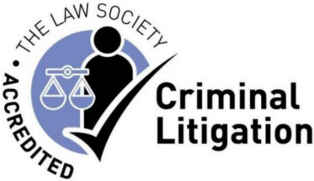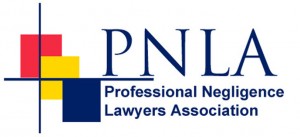Our Specialist Dor set Inquest Legal Advice Service
set Inquest Legal Advice Service
As one of few law firms throughout England and Wales with a specialist Inquest Service, we regularly represent families at inquest hearings in the Coroner Court. This is often under a No Win, No Fee agreement.
Our medical negligence and fatal accident compensation Solicitors can provide expert legal advice, support, and comfort at one of the most difficult times in life. And we regularly represent clients in inquests throughout Dorset, Wiltshire and Hampshire from our four offices in Salisbury, Fordingbridge, Andover and Amesbury.
Contact Us Now for FREE initial phone advice about an Inquest. Email us or call us on FREEPHONE 0800 1404544 0r 01722 422300
What is an inquest?
An inquest is a formal investigation into why someone died. It is not a legal trial, although there are some similarities. For example, the Coroner can call on experts and witnesses to the death to give evidence. However, it is not the Coroner’s job to decide criminal or civil liability or set out blame.
What is a Coroner?
A Coroner is a person who investigates how and why a person died. They are an independent judicial officer and have many powers available to them to establish the cause of death. These include ordering a post-mortem, obtaining witness statements, and holding an inquest.
Every district has one Senior Coroner. They are appointed by the Crown and usually have extensive experience in medicine or law – sometimes both.
In R v HM Coroner for North Humberside and Scunthorpe ex parte Jamieson [1995] 1 QB 1, Sir Thomas Bingham MR stated:
“It is the duty of the Coroner, as the public official responsible for the conduct of inquests, whether he is sitting with a jury or without, to ensure that the relevant facts are fully, fairly and fearlessly investigated.”
When is a death reported to the Coroner?
A doctor will report a death to the Coroner in the following situations:
· it is not known how a person died
· the death was violent or due to unnatural causes
· there is no explanation for the death and/or it was sudden
· a health professional did not visit the deceased during their final illness
· there is no medical certificate
· the medical certificate was signed by a doctor who had not seen the deceased within 14 days prior to death
· the deceased died during an operation or before they woke up from an anaesthetic
· the medical certificate suggests industrial disease or industrial poisoning was a cause of death
The Coroner can decide upon initial examination that there is a clear cause of death. If this is the case, they will inform the Register that a post-mortem is not required.
What is a post-mortem?
The background for many TV shows (CSI, Silent Witness), a post-mortem or an autopsy is a procedure during which a body is examined to establish the cause of death. Post-mortems are carried out by pathologists with a medical degree and five to six years of specialist training.
A post-mortem can be requested by a Coroner or a doctor. The latter may request the procedure to discover more about a particular cause of death.
Family members will be contacted regarding preliminary findings on a cause of death as soon as the results are available.
Can a post-mortem be conducted without the family’s consent?
If a death is sudden, suspicious, or unnatural, a Coroner must order a post-mortem to establish how the death occurred. Family members will not be asked to consent as permission is not required. Our team and hospital bereavement officers will provide you with support through the post-mortem process. You can also contact the bereavement charity, Cruse, on 0808 808 1677 or visit https://www.cruse.org.uk/.
How do I know my loved one’s body will be treated with respect during a post-mortem?
Some families object to a post-mortem being performed given it is a highly invasive procedure. It can be especially upsetting if the deceased is a child. It is true that a post-mortem procedure does involve opening up the deceased’s body and sometimes removing organs for close examination. However, the extensive training of a pathologist and the legal safeguards in place means your loved one will be treated with the utmost dignity and respect.
The Human Tissues Authority (HTA) regulates all organisations which remove, store and use human tissue. Anywhere that carries out post-mortems must be licensed by the HTA.
If your loved one’s tissue or organs have been retained for further tests or examination, a Coroner Liaison Officer who works for the Coroner will inform you.
When is the body be returned to the family following a post-mortem?
In almost all cases, the body will be released to the family after completion of the post-mortem. However, in rare cases (usually involving death by violence) the body will undergo further examination. You will be informed of this and every effort will be made to release the body to you as quickly as possible.
The funeral can take place once the Coroner is convinced no further examination of the body is required. If an inquest is required, the death certificate cannot be issued. This can cause problems when it comes to administrating the deceased’s estate as not everyone will accept an interim ‘Coroner’s Certificate of Evidence of Death’. Our Probate Solicitors can advise you on what to do in this situation.
What happens at an inquest?
The aim of an inquest is to establish the following:
· The identity of the deceased
· Where they died
· What time they died
· How the deceased came by their death (this is narrower than the question “how did the deceased die”)
Any evidence that does not help answer these four questions is not permitted.
The Dorset Coroner’s Office
The Dorset Coroner’s Office is based in Bournemouth – but they are not permitted to provide you with any legal advice.
You can however contact the Coroner’s Officers at:
Coroner’s Office for the County of Dorset
Town Hall
Bournemouth
BH2 6DY
Tel: 01202 454910
E-mail: coroner.service@bcpcouncil.gov.uk
Are the hearings held in private?
No. Inquests are held in public except when there are issues of national security to be protected (and even then, only those matters related to national security will be held in private).
Do I need a Solicitor at an inquest?
The family of the deceased does not need to have a Solicitor present. However, many people underestimate the emotional trauma an inquest can cause. Having legal representation and support can help alleviate some of the upsetting aspects of an inquest. Our specialist team can help you by representing you at an inquest.
If there is a possibility of a future compensation claim, having legal advice after the inquest can help establish the chance of a successful claim being made.
How we can help you?
Our specialist inquest team have extensive experience in representing clients at Inquests.
We understand how very distressed family members can be at an inquest. Our sympathetic and practical approach can make a real difference to families at this distressing time.
How can I pay for inquest representation?
Legal aid is not normally available for inquests – except in very exceptional circumstances. Where appropriate, we may agree to represent you at inquest under a no win no agreement – depending on your particular circumstances. If you’re worried about paying for inquest representation, just call our team and we can talk through the options with you, with no charge and no commitment.
Looking for more information?
Click here to find out more about our Inquest Service.
Click here to find out more about making a medical negligence claim.
Fordingbridge Contact Details
5, Provost Street,
Fordingbridge,
Hampshire,
SP6 1AZ
Tel: Fordingbridge 01425 652110
Fax: Fordingbridge 01425 654606
DX: 46050 Fordingbridge
Email: fordingbridge@bishopslaw.com













